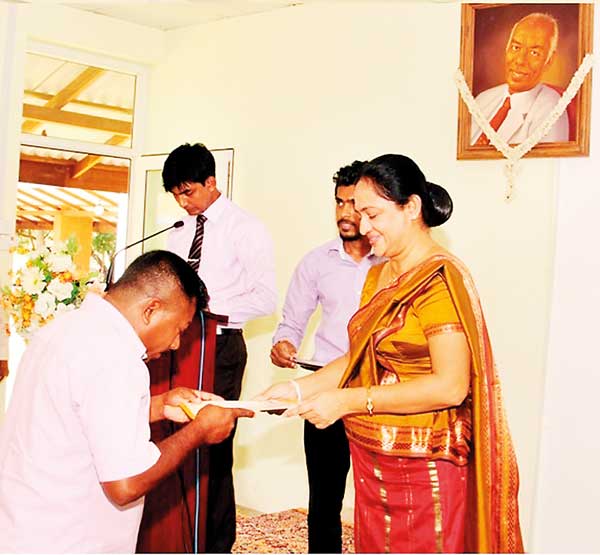Reply To:
Name - Reply Comment

Tokyo Cement, the market leader in the cement industry, recently concluded the fourth consecutive National Vocational Qualification (NVQ) Certificate Awarding ceremony at the AYS Gnanam Construction Training Academy, Dambulla for 106 construction craftsmen (masonry), based on the results of tests conducted by the National Apprenticeship and Industrial Training Authority (NAITA).
The ceremony was held under the patronage of NAITA Chairperson Dr. Bhadra Thoradeniya, NAITA Vice Chairman Bandarathilaka Mirihella and NAITA District Manager Upul Karunaratna.
Speaking at the event Banadarathilaka said, “The Tokyo Cement group should be commended for its continued service in the training and development of the construction industry in Sri Lanka. Its commitment to upgrade the skills of the construction craftsmen is ensuring the quality, skill and knowledge of the masons of our country.”
The training academy opened in 2012 is dedicated to the memory of Tokyo Cement Group founder Chairman the late Deshamanya A.Y.S. Gnanam and is equipped with a dormitory for 50 residential trainees, lecture halls with multimedia facilities, fully-fledged laboratory and a workshop for practical training. Trainees are provided with building materials, tools, stationary and food totally free of charge during their training.
B.H.S Surweera speaking on behalf of the Skills Development and Vocational Training Ministry expressed his gratitude to the Tokyo Cement group for sharing the responsibility of training construction craftsmen during the past two decades.
“We are very pleased with the training formats offered as it recognizes the prior learning system for practicing craftsmen (masonry) and competency-based training for school leavers which includes two months institutional training and four months on the job training.”
The academy is also open to school leavers looking for a lucrative career in the construction industry. The prospective candidates are trained under the competency-based training programme accredited by the TVEC, providing them with the required theoretical and practical training.
Corporate citizenship is integral to Tokyo Cement’s DNA, its corporate social responsibility (CSR) initiatives range from the first-ever All Island Schools Quiz intended to encourage education and incite intellectual competitiveness amongst the nation’s youth, to the reforestation of mangroves along vulnerable coastlines and the rehabilitation of coral reefs with recycled concrete. Tokyo Cement’s work to incorporate sensible sustainable solutions into operations, lead to its pioneering the use of biomass power to generate 10 megawatts of renewable energy, which is enough clean energy for their daily production needs.